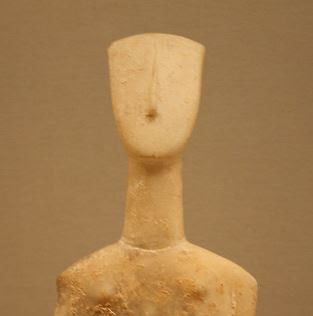Idols
“. . . There are many, many idols, and all of them are revealed by symptoms which must surely stir God’s compassion for a poor humanity that devises such torment for itself.
It is easy to see that people become like their conception of God: hard if it is hard; flabby if it is soft; cruel if it is cruel—and I was going to say respectable if it is respectable, but perhaps respectability is not an idol, but simply the Englishman’s escape from God.
Now we have one answer to the question, Why must we be always seeking for the lost Child?
Why must we be always feeling the pain of loss?
If we did not, we should not realise that our idols are not God, are not Christ.
Bad as they are, they match our limitations; and if they could content us, we should never know the real beauty of Christ: we should not become whole.
It is one of God’s great mercies that, although our vanity and our fear and other mean passions crave for satisfaction, when they are satisfied, we are not. There is an essential you, an essential me, who cannot be satisfied excepting by God: that is why the sense of loss saves us from complacency in our idols and drives us to go on seeking for the lost Child.
That is why people who seem to have got (and even to have got by their own efforts) all that life can give are so often aware of an inexplicable lack, a want in themselves.
Our conception of Christ makes us what we are, makes our effect on others what it is, influences us and influences everyone with whom we come into contact.
Our Lord said to His Apostles: ‘It is expedient for you that I go away.’
It is the same for us. We know Him only by continually learning Him anew; we get away from false gods only by continually seeking Him; we hold Him only by losing Him.
He goes away from us because it is expedient for us. He goes away that we may seek Him. The sense of loss, the awareness of insufficiency, makes us long for Him as He is; it makes us willing to go out from ourselves and find Him where He is.
He wants us to seek, because He wants to give Himself to us. It is an experience like the experience of emptiness: the emptiness must be there that He may fill it; and we must be aware of it in order that we may want Him to fill it.
‘Why hast thou done so to us?’
And the answer is simple, after all: ‘Seek and ye shall find.’
His meaning is Love.”
~Caryll Houselander (from The Reed of God)

.jpg)

Comments